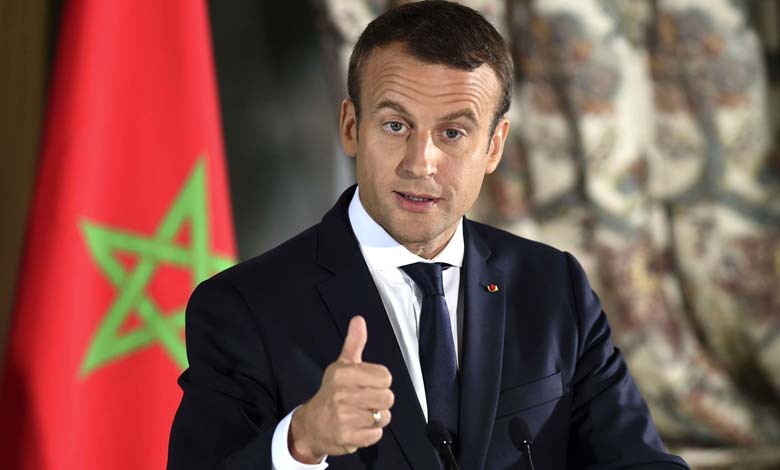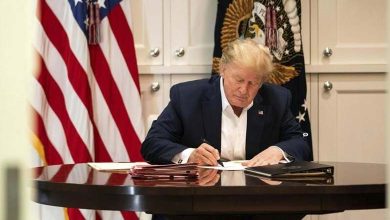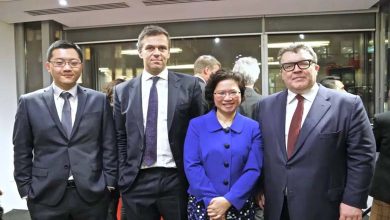France expresses a strong desire to end tensions with Morocco
The French Foreign Minister, previously known for his hostile stances towards Rabat, affirms that he will personally work to reconcile and strengthen relations between the two countries

France has shown a strong willingness to correct the course of relations with Morocco and end a serious crisis that has cast heavy shadows on its interests with its Moroccan partner, simultaneously renewing its support for the proposal of autonomy as a realistic solution to end the artificial conflict in the Sahara.
The new French Foreign Minister, Stéphane Séjourné, stated that he would work “personally” to bring France and Morocco closer together, adding in an interview with the daily newspaper “Ouest France” today: “We have had several contacts (with the Moroccans) since my appointment” on January 12. And he emphasized that “the President of the Republic asked me to invest personally in the Franco-Moroccan relationship and also to write a new chapter in our relationship. And I commit to doing so.”
He also stressed that France “has always been on time, even regarding the most sensitive issues such as the Sahara, where France’s clear and continuous support for the Moroccan autonomy plan has been a reality since 2007.” He added: “We add that the time has come to move forward,” confirming: “I will do my best in the coming weeks and months to bring France and Morocco closer together” while “respecting the Moroccans.”
Séjourné’s statements indicate that France is intensifying its diplomatic efforts to send positive messages to Morocco and express its willingness to improve and push forward relations, affirming that the political figures present in the government who previously took hostile positions towards the kingdom are very determined to open a new page and foster closeness with Rabat.
France’s current interest requires a change in Séjourné’s previous hostile positions towards Morocco given the current relations between the two countries. And to adopt a new approach to draw closer to Rabat, especially after the setbacks and decline of French influence in the Sahel region, in favor of Morocco’s rise as a significant force and reliable partner that has managed to penetrate the African continent with a quiet political and economic diplomacy based on strategic partnerships that serve Africa’s and the kingdom’s interests.
Politicians in the new government recognize that they must work to improve bilateral relations with Rabat, especially since France generally has tense relations with a number of its former colonies in Africa, and is in dire need of a stable relationship with Morocco.
The new Prime Minister, Gabriel Attal, who was also known for his hostile positions towards Morocco, may have learned from the past and his country’s concerted efforts to improve relations with Rabat, given its importance and strategic position in the region, particularly as France’s top trading partner in Africa, and securing a gateway to sub-Saharan Africa where it has actively exercised economic “soft power” since 2010.
The calculations of French politicians were clearly evident in the remarks of former French intelligence chief Alain Juillet a few days ago, severely criticizing French diplomacy towards Morocco, highlighting serious mistakes, including its continued pursuit of a contrary approach to what Franco-Moroccan relations should be, leading to “the state that was recently an ally of France, now being in conflict with us,” wondering “how can France make such mistakes? It’s unbelievable.”
Juillet, who served as head of French intelligence in 2002, spoke of his country’s loss of influence in Africa, affirming instead that Morocco has succeeded in taking Paris’ place in the Sahel region following the initiative launched by King Mohammed VI, which allows Sahel countries access to the Atlantic Ocean.
He said that Morocco has succeeded in taking Paris’ place in the Sahel region, especially following the Moroccan initiative to enhance access of Sahel countries to the Atlantic Ocean.
He believed that Morocco has already surpassed France, especially after concluding an economic agreement with Niger, Mali, and Burkina Faso, countries that have experienced military coups and are now ruled by military councils.
Rabat committed to positive neutrality in the crisis that the three countries went through, while France adopted a hostile policy and pushed for intervention in the affairs of its former colonies instead of seeking diplomatic solutions.
The past two years have been marked by extremely strong tensions between Morocco and France, the former colonial power where a large Moroccan community resides. One of the main causes of tension was French President Emmanuel Macron‘s attempt to approach Algeria, while the latter severed its diplomatic relations with Rabat in 2021.
In September, a new controversy arose after Rabat ignored France’s offer to provide assistance following the devastating earthquake.
French positions have caused tensions over the past few months, including the refusal of Moroccan authorities to accept French aid intended for victims of the earthquake on September 8, which angered the French media that launched campaigns against Morocco and its institutions. This reflected the extent of the “silent crisis” that has overshadowed relations between Rabat and Paris for over two years, manifested notably by the suspension of official visits between the two countries, the absence of any contact between the Moroccan king and the French president, and a diplomatic vacuum.
After French attempts to mend the rift and show goodwill towards Rabat, the French ambassador to Morocco acknowledged last November that the decision to restrict the granting of French visas to Moroccans was a mistake.
In November 2023, while participating in a radio program on “Radio 2M,” the French ambassador to Rabat, Christophe Lecourtier, announced that his country had lifted all restrictions imposed on issuing visas to Moroccan citizens to definitively close this file, but he expressed regret for this decision, which he said was a “loss” for his country according to President Emmanuel Macron, and greatly harmed its image. He explained that such a strong relationship between Paris and Rabat cannot be managed solely through statistics.
Relations between the two countries subsequently showed signs of improvement, and King Mohammed VI of Morocco appointed Samira Sitail, a journalist and former news director of the Moroccan second channel, as ambassador to the French Republic in October, months after the position was vacated following the end of the mission of Ambassador Mohammed Benchaaboun on January 17, the same day the European Parliament voted on a resolution regarding press freedom, considered hostile to Morocco through an initiative and support from Macron‘s party deputies.
The specialized African affairs newspaper “Africa Intelligence” revealed that Macron is preparing to visit Rabat after a relative improvement in relations recently, indicating that the French presidency plans to turn a new page in bilateral relations and give a positive boost to relations between the two countries.












